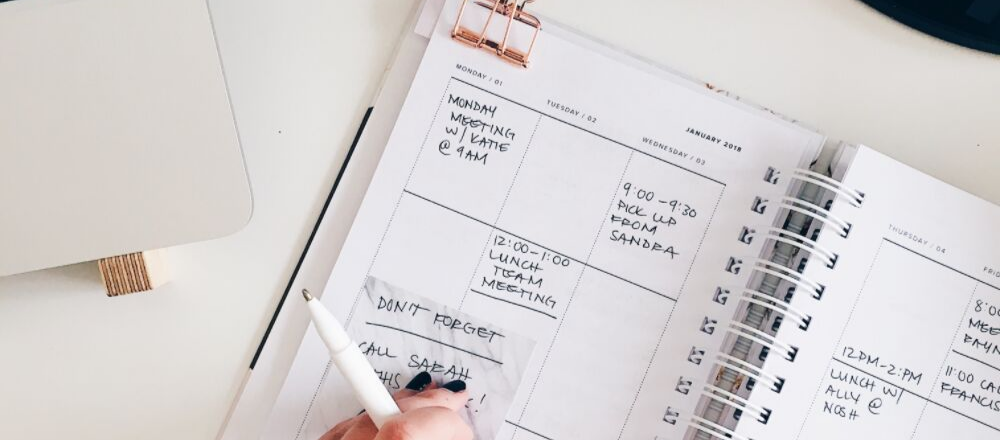Starting A New Job (Tips For Your First Day)
We don’t agree with the phrase, “First-day jitters”. Starting a new job isn’t a jitter, that’s the caffeine kicking in. A better way to describe the first day of work is, “First day-here-goes-nothing-hope-I-don’t-do-something-stupid”.
When mixed with caffeine, this feeling can escalate faster than a picture of a blue and gold dress. To start this article off right, our first tip for starting a new job is simple.
Don’t over-caffeinate.
Yes, you want to be productive but you also don’t want to be shakily signing your paperwork with a scribble worthy of a four-year-old. You want to be the cool, calm and collected version of yourself and we’re going to show you how to tap into that.
In order to do so, we have to sound like a broken record.
Preparation is key.
Let’s look below the fluff of cliche advice. Preparation really is everything but knowing what to prepare for is what’s going to keep your “Namaste” flowing as you’re starting a new job.
Let’s break down your first day at a new job by starting the night before.
Use The Echo Effect To Look More Professional
The Echo Effect is “the power of verbal mimicry to influence prosocial behavior”. It was discovered in 2013, when a group of psychologists found that when Person A explained a concept to Person B, and Person B used the same verbiage when talking about the same concept to Person A later, there was an increased sense of cohesion, rapport, and affiliation. This strategy is used by former FBI Top Hostage Negotiator, Chris Voss, and outlined in his book Never Split The Difference: Negotiating As If Your Life Depended On It.
In terms of starting your new job, repeating the same verbiage back to your boss and team members on your first day can help you look strides more prepared, competent and likable.
In order to ensure you’re using the right verbiage take notes off of the job description, resources and messages you have received from your boss or team members. Write down keywords and phrases to use on your first day that will amplify your reputation as a key player of their team.
A power move here would be to write notes in a digital space that you have access to on mobile and desktop. This ensures you have the notes handy wherever you are in the office or while working remotely. It also gives you quick access to continue adding notes as the day goes on so you have new verbiage to use when communicating with your team members.
Taking notes is going to be an integral part of your first day in the office.
Embody Your Inner Scribe
Writing notes helps our brain evaluate and then organize incoming information, increasing our chances of remembering facts and useful knowledge in the future. You’re going to use this magic neurological science to look as professional and on the ball as possible during your first day.
Here’s what to take notes on when you’re starting a new job:
- Colleagues names, departments, interests, etc.
- Issues you see in systems, management, etc.
- Questions to ask at the end of the day
- Ideas and suggestions for the future
And, anything else you deem fit during your workday. Think of anything you want to remember six weeks after this first day, and write it down.
For example, making suggestions about operations may not be the best move on your first day. While you’re getting oriented, it might make more sense to continue to see the issue you have a suggestion for and wait a few days to really understand the root of the problem. Once you are acclimated to the work environment and have a thorough understanding of the operations behind the issue, you can create a much more viable case for change, with a lower risk of rubbing people the wrong way.
Taking notes on these issues will remind you of what you want to focus on so that you can give suggestions for improvement in the future. It’ll help you from flubbing up a colleagues name and will give you the extra edge when you’re able to send your boss a copy of the book they mentioned casually.
Professionals take notes.
And so, you do too.
Build An Action Plan For Your New Role
On the topic of taking notes, we want to start diving into your day to day activities after starting a new job. These daily actions are going to cumulate to become your annual ROI (the return of investment the company has from hiring you). How can you be as productive as possible?
Businesses establish annual goals for themselves, breaking them down into KPIs and metrics they can track throughout the year. You can do the same.
What do you want to accomplish in Q1, Q2, Q3, and by Q4?
For example, after starting a new job your goals might look like this:
Q1: Create relationships with coworkers to ensure they enjoy working with me and that our communication in person and online is fun, easy and simple.
Q2: Start to showcase my talents through an ROI (choose a metric based off of your role).
Q3: Integrate three big ideas into my department that move the needle forward.
Q4: Create a summary of the metrics I was able to effect in the past 12 months.
Once your goals are established, find a place to put them where you will be able to see them regularly. For example, Michael Phelps keeps his goals on his nightstand and reads them over every night before bed.
It seems like Phelps was on to something. He wrote down his goals and then became the most decorated Olympian in history.
Dr. Gail Matthews, a psychology professor at the Dominican University in California, found that writing down your goals makes you 42% more likely to achieve them.
Don’t fight the science.
Start writing down your goals.
What To Do During Lunch On Your First Day at a New Job
Aside from the joy of eating lunch, a lunch break is a time to refill your personal bucket with the energy you need to finish out the workday at top performance. How you decide to fill your bucket during your lunch break is dependent on your personality type.
There are two personality types we are referring to:
Extrovert: a person who recharges their energy (and fills their bucket) by socializing with others
Introvert: a person who recharges their energy (and fills their buckets) by spending time alone or in a quiet area
For example, an extrovert would prefer to each lunch with colleagues if they work in an office space or grab lunch with a friend. An introvert would prefer to spend some time alone, recharging from all of the social activity of the first half of their work day.
To determine if you’re extroverted or introverted, ask yourself, what recharges me?
- Does spending time around other people make you feel more centered, relaxed, and focused?
- Does spending time alone or in a quiet space make you feel more centered, relaxed, and focused?
You don’t have to lean 100% in one direction, but define which situation you tend to prefer.
An extrovert fills their bucket by being around other people.
An introvert fills their bucket by spending time alone or in less social situations.
In the case of your first day of work, an introvert might not be able to find alone time during lunch if they work in an office where colleagues eat together. Sanctioning yourself off on your first day isn’t necessarily the best move for starting relationships on the right foot.
An introvert can take ten to fifteen minutes to walk outside and “take a quick call.” This time can be spent in a quiet area of the office where they can have a chance to recharge from the potential chaos of their first day.
In the changing landscape of work, more introverts are finding their way into leadership positions.
To take care of your company and your team members, you first have to take care of yourself. Recharge yourself during lunch to continue to operate at peak performance.
Starting a New Job at a Remote Company
“In this day and age of informational ubiquity and nano-second change, teamwork remains the one sustainable competitive advantage that has been largely untapped.” Patrick Lencioni
How do you gain the competitive advantage of teamwork if your team is completely remote?
By mastering the craft of chat.
In our opinion, chat isn’t about choosing a theme color and being able to send cat GIFs. It’s about sending quick messages, having your chats organized by project or department and being able to pull up any shared files at the click of a button.
Who can think more clearly, the CEO in a quiet room with just a chair and a desk or the CEO in the middle of a Target?
As a team leader, here are a few suggestions to make sure you’re not adding to the noise, but making a valuable addition to the chats that already exist:
- Keep messages short and to the point, addressing what you want to tell a team member, why you are telling them this, and what action you want taken from the message. Read more about this 3 step formula for effective communication here.
- Always reply to chats directed to you. Even if it’s as short as, “Got your message. Will circle around when the task is completed.”
- Avoid conversational texts by not responding to messages that are banter or distracting.
Remote businesses are only as strong as their digital headquarters. Use chat and productivity apps to help your team be more productive, not spend time choosing the best GIF to respond with.
Read more on how to make group chat work at work here.
Your first day at a new job is a strategic day.
Use these methods to showcase your expertise and establish the representation of a leader in the company.




